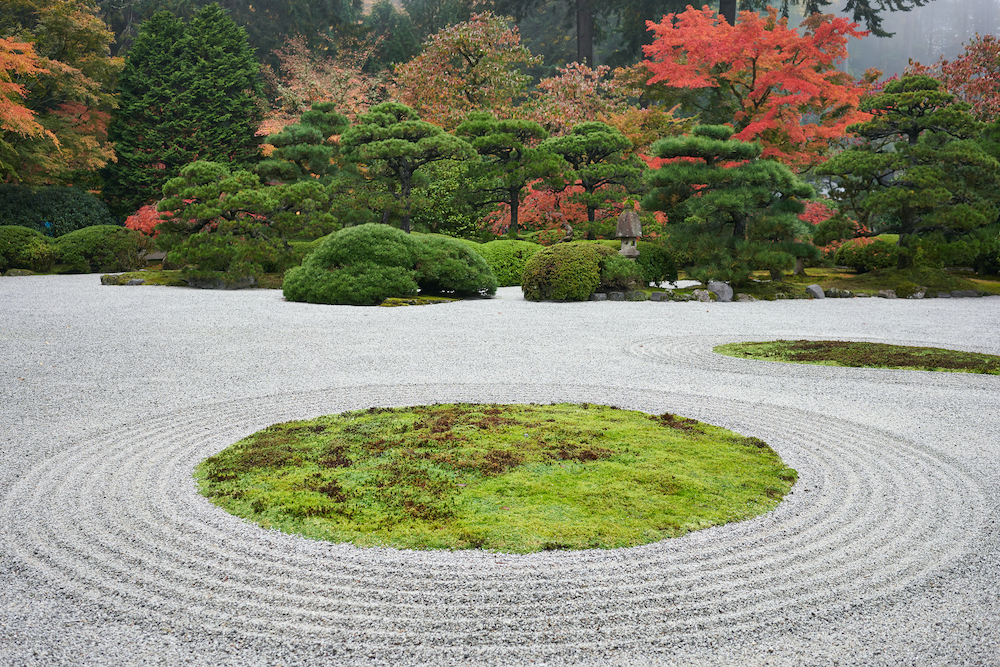Calm as a Rock
What most people know today as a Japanese “zen garden” actually predates the arrival of Zen Buddhism in Japan. In a place where there was no water or stream, one could build a stone garden and use sand to fill the void.Known as a Japanese rock garden, these unique spaces drew their inspiration from an even older Chinese garden style that used arrangements of rocks to symbolize the mountain-island home of the Eight Immortals in Chinese mythology, Mount Penglai. Tending to these gardens includes raking the sand or gravel to represent the ripples of water. Over time these rock gardens came to be important places for meditation and their simple design was an aid in those seeking tranquility. Unlike many other garden forms, Zen gardens have few plants, place emphasis on rocks, and are largely defined by their sand or gravel. They were frequently made at temples. For people today looking to create a sanctuary in their backyard, this style offers several benefits. It requires relatively little water, is easy to maintain, and has a well-established pedigree helping people calm their minds in pursuit of spiritual enlightenment.

What most people know today as a Japanese “zen garden” actually predates the arrival of Zen Buddhism in Japan. In a place where there was no water or stream, one could build a stone garden and use sand to fill the void.
Known as a Japanese rock garden, these unique spaces drew their inspiration from an even older Chinese garden style that used arrangements of rocks to symbolize the mountain-island home of the Eight Immortals in Chinese mythology, Mount Penglai.
Tending to these gardens includes raking the sand or gravel to represent the ripples of water. Over time these rock gardens came to be important places for meditation and their simple design was an aid in those seeking tranquility.
Unlike many other garden forms, Zen gardens have few plants, place emphasis on rocks, and are largely defined by their sand or gravel. They were frequently made at temples.
For people today looking to create a sanctuary in their backyard, this style offers several benefits. It requires relatively little water, is easy to maintain, and has a well-established pedigree helping people calm their minds in pursuit of spiritual enlightenment.












